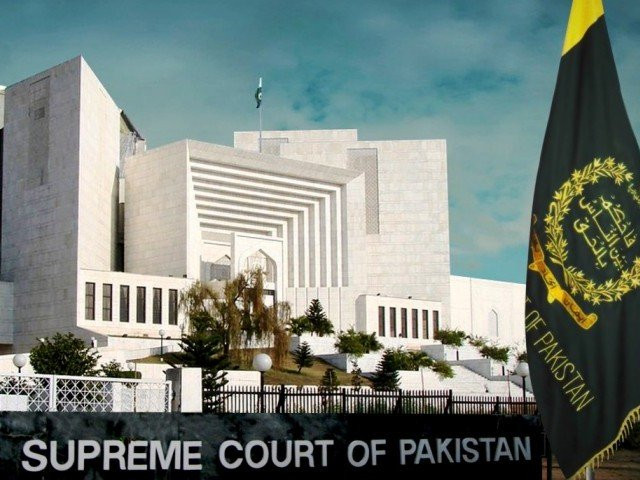Top court tells Punjab govt to stop inter-institutional interference
SC warns case could end up with anti-corruption watchdog if institutions complained

Supreme Court SC. FILE PHOTO
This was stated by a three-member bench of Supreme Court (SC), headed by Justice Sheikh Azmat Saeed, as it heard a case filed by the Lahore mayor regarding powers of the local government in the province.
During Wednesday’s hearing, Punjab Advocate General (AG) submitted a report regarding the cases about the Lahore Development Authority (LDA) Director-General (DG) Amna Amir. He further told the court that the provincial chief secretary was not exclusively involved in either of the cases.
However, he said that action has been halted in both cases until further orders from the court
Justice Saeed said that the mayor power case has taken a different direction while the court exercised its powers after the mayor and the LDA displayed lethargic attitude.
Expressing his displeasure, Justice Saeed said that the government should abolish article 140. He further remarked that handling of affairs was primarily the government’s job.
He directed the AG Punjab to find a quick solution of the matter and to stop inter-institutional interference. If the institutions complained, he said that the case could be referred to the National Accountability Bureau (NAB) if the Institutions complained.
Further, the court sought answers from Amir after reviewing the report presented by Punjab AG. The court further ordered mayors of Faisalabad and Kasur to file separate applications to become a party to the case.
As per the report submitted by the Punjab AG in the mayor ’s powers case, the provincial chief minister has assured that the term of Anti-Corruption (AC) Director General (DG) would not be extended while the director general of AC has clearly stated that he did not name LDA DG Amir in the cases.
However, her role would be determined once the investigation starts. Further, any action against her will be taken in compliance with court orders.
The report revealed that Amir herself requested the AC to carry out an investigation against the illegal constructions, such as buildings, housing schemes and encroachments, while the department refuted any allegations of harassment by Amir.
The court was informed about the mistakes in the past two reports and it added that the land, which was marked as the state property, belonged to a private owner.
Moreover, a First Information Report (FIR) registered in the case stated that no stadium was built on the land however only grass was planted on it while, the answer revealed that, Amir was not named in any of the FIRs.
The court adjourned the case for two weeks.
Child maid torture case
A two-member bench of the SC, headed by Justice Qazi Faezz Isa, issued notices to the respondents in a review appeal filed over the child maid torture case.
The government’s counsel pointed out that the trial court did not sentence the suspects under Article 506. A this, Justice Isa said that the court would review that if the suspects should be sentenced according to the particular article and asked for clarification that why should the suspects not be punished under article 328.
Justice Isa further said that it was required to prove an injury in the cases of domestic violence. He further remarked that the government counsel should explain per the law the wounds on the child maid.
The court approved for hearing an application to dismiss the sentence and the court adjourned the case for an indefinite period stating that further proceeding would be carried out by a three-member bench.
Man sentenced to death for killing sons
A three-member bench of SC, headed by Chief Justice Asif Saeed Khosa, rejected the plea of a father involved in the murder of his two sons in Pakpattan and upheld his death sentence.
The court remarked that the suspect killed his two innocent sons, adding that the suspect had sought to marry another woman which caused a rift between him and his first wife.
The court said that the suspect should not be given any mercy since he butchered his sons of which his third child was an eyewitness but managed to flee.
Even though the witness was 12 to 13-years-old, their testimony cannot be neglected. The CJP said that why in the world would a son become a witness against his own father.
The petitioner’s counsel Yousuf Raza said that the daughters of the convict were not taken as witnesses in the case on which the Justice Khosa remarked that it was due to our culture that women were kept away from such incidents.
At this, Raza said that testimony from kin was not considered. Justice Khosa asked whether it was licit to murder one's own son?
Published in The Express Tribune, February 28th, 2019.



















COMMENTS
Comments are moderated and generally will be posted if they are on-topic and not abusive.
For more information, please see our Comments FAQ